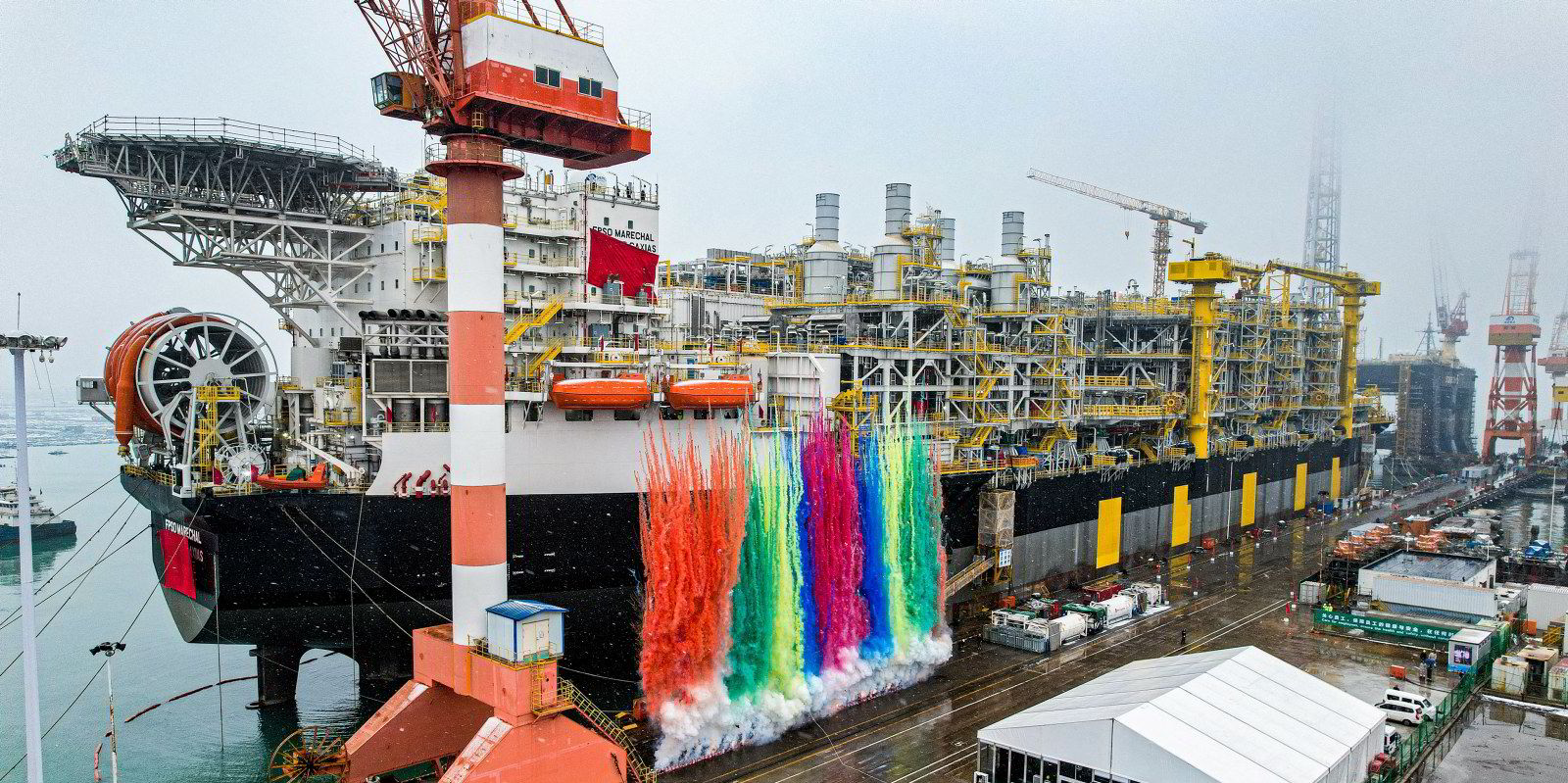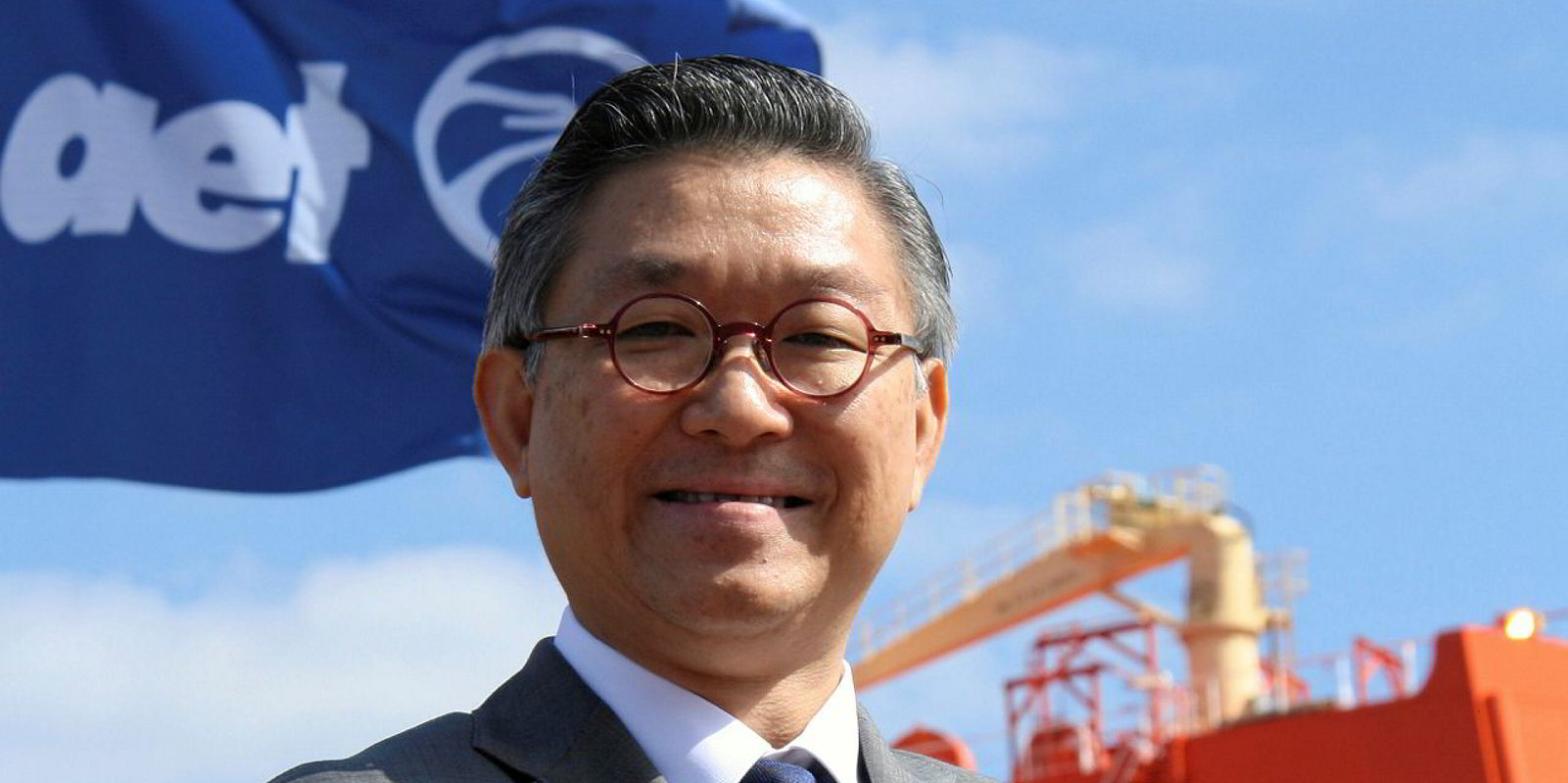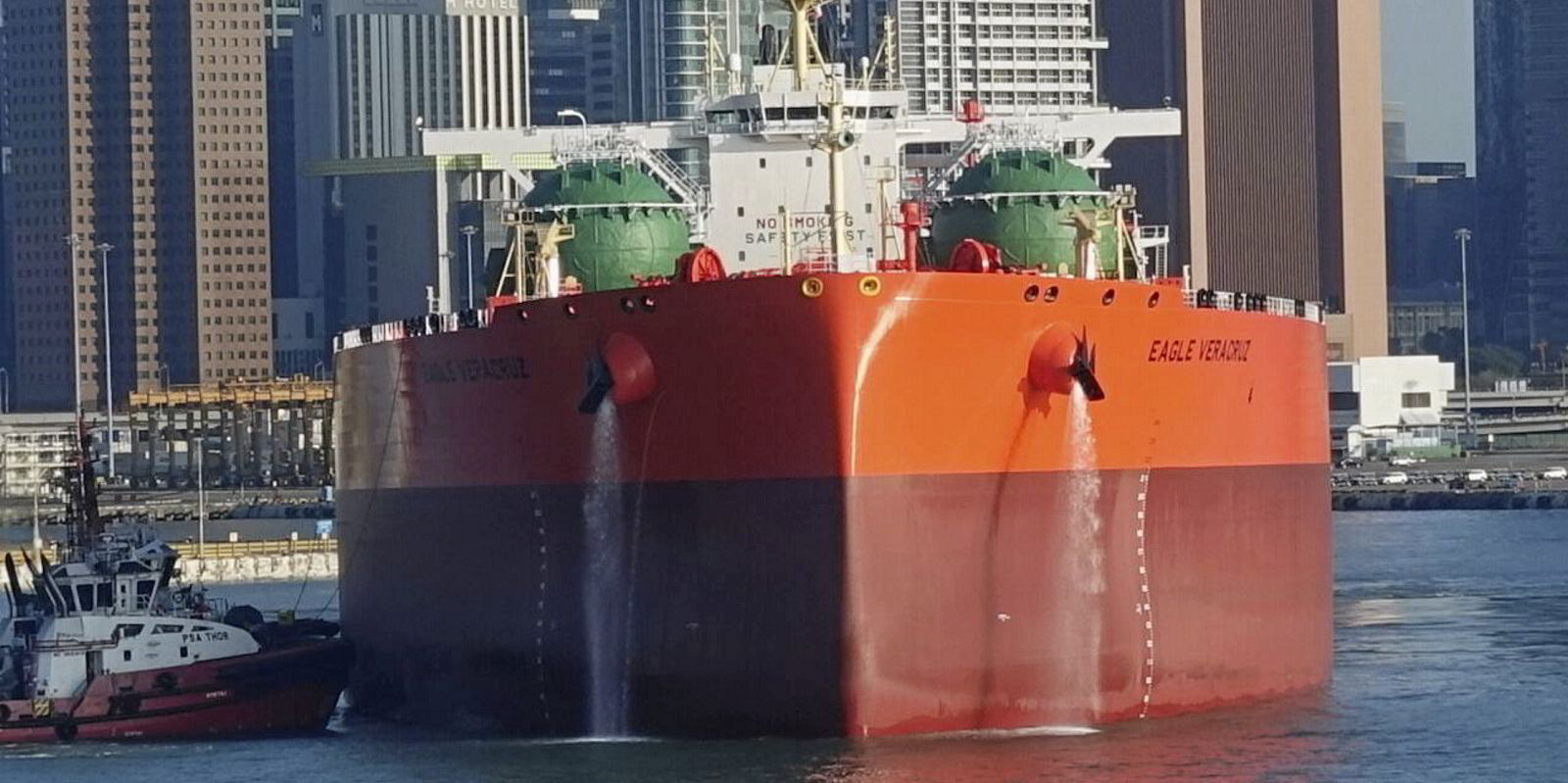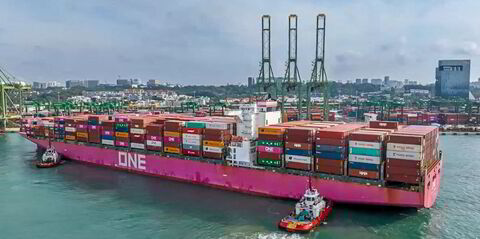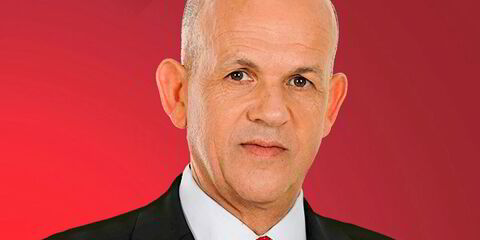The MISC Group has started the year with two significant milestones, with naming ceremonies for an FPSO that will launch its entry into the Brazilian offshore sector and the last of a trio of LNG dual-fuel VLCCs built for a Shell charter.
The Malaysian shipping and offshore conglomerate’s giant floating production, storage and offloading vessel Marechal Duque de Caxias was named at CIMC Raffles shipyard in China on 17 January.
The vessel was converted from the 300,000-dwt tanker Bunga Kasturi Dua (built 2005) that previously operated in the fleet of AET, MISC’s tanker arm.
The FPSO Marechal Duque de Caxias, MISC’s offshore business division’s first ultra-deepwater asset, will depart China in February and, once arriving off Brazil, will be stationed at Petrobras’ giant Mero oilfield in the Santos basin.
The Mero field is owned by the Libra Consortium, led by Petrobras with a 40% interest, and Shell and Total with 20% each.
MISC won the contract to supply the FPSO to Petrobras in August 2020, its first such contract with an international client not linked to its oil major majority shareholder Petronas. The contract has a duration of 22 years.
Touted as one of the largest and most sustainable FPSOs of its kind, the Marechal Duque de Caxias has been designed to accommodate Petrobras’ cutting-edge Hi-Sep system to allow for a greater reduction in carbon intensity through the dense separation of associated gas with CO2 content using subsea centrifugal pumps. The technology is scheduled to become operational at the Mero pre-salt basin in 2025.
Built with a high production capacity of 180,000 barrels of oil and 12m cubic metres of gas per day, the vessel is equipped with water alternating gas (WAG) reinjection technology, which MISC said exemplifies its strategy in carbon capture. Additionally, it can strip and reinject CO2 from fuel gas production, with a capacity to compress up to 48m standard cubic feet per day of CO2.
MISC said the Marechal Duque de Caxias conversion achieved over 28m safe man-hours with zero lost time injuries as of December 2023, “highlighting the Group’s focus on safety and operational excellence”.
The Eagle Veracruz naming
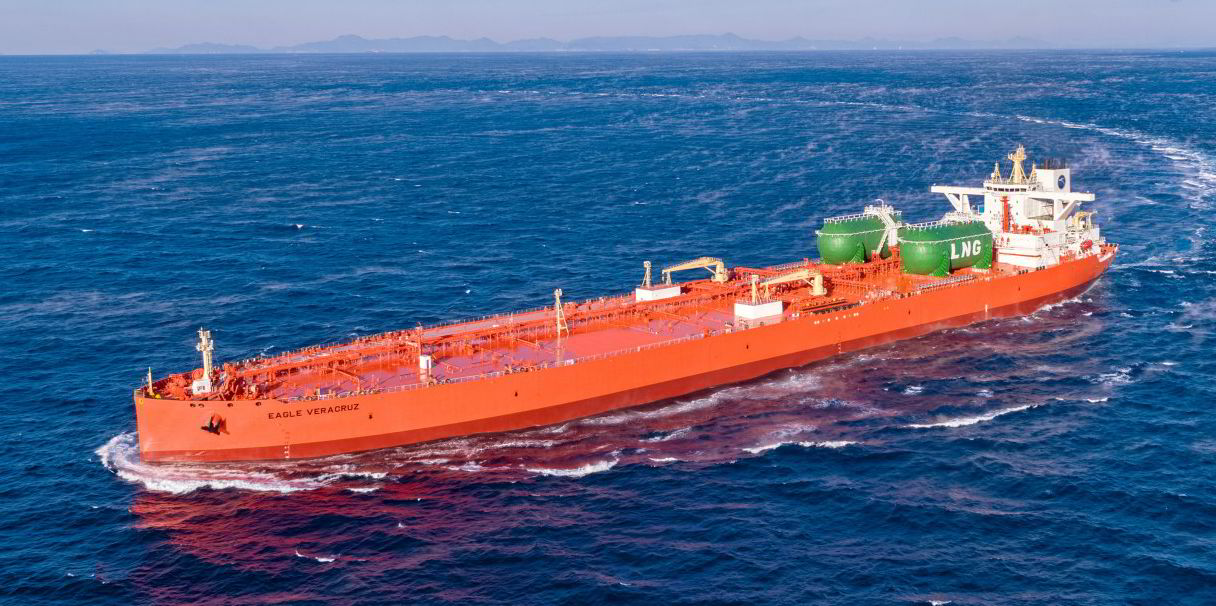
This week, MISC tanker subsidiary AET held the naming ceremony for its 300,000-dwt crude tanker Eagle Veracruz in Singapore.
The vessel is the last in a series of three LNG dual-fuel VLCCs the company built against long-term charters to energy major Shell.
Classed by Lloyd’s Register, the Eagle Veracruz and its two sister ships are designed with state-of-the-art technologies, optimised hull forms and propellers, wake improvement ducts and rudder bulbs to further improve energy efficiency.
Describing the vessels as being among the most eco-friendly VLCCs available today, MISC said they comply with the International Maritime Organization’s 2025 Energy Efficiency Design Index Phase III, with a 99% reduction in SOx, 85% reduction in NOx and 95% particulate matter. The company said that when fully utilising LNG as fuel, the tanker’s emissions are about 16% lower than a comparable vessel using only heavy fuel oil.
AET was one of the first movers in the LNG dual-fuel tanker space. Currently, 15% of the company’s global tanker fleet is powered by LNG dual-fuel technology, and growing.
MISC said that while the shipping industry continues to transition to the next generation of cleaner and near-zero-emission fuel technology, it believes that LNG will still play a key role in the responsible transition.
MISC’s president and group chief executive Captain Rajalingam Subramaniam said the FPSO Marechal Duque de Caxias and VLCC Eagle Veracruz, symbolise the company’s “focused and continuous commitment to supporting energy security and transition initiatives responsibly and sustainably globally”.
“As we embark on this purposeful journey into 2024, our teams at sea and shore are the driving energy behind our progress. We will continue to stay true to our aspirations of being a valued partner in a just and responsible global energy transition. As always, we extend our thanks to our clients and stakeholders for your trust in our brand and our global workforce,” he added.
As TradeWinds reported earlier on Wednesday, the Eagle Veracruz is the only VLCC scheduled for delivery this year.
